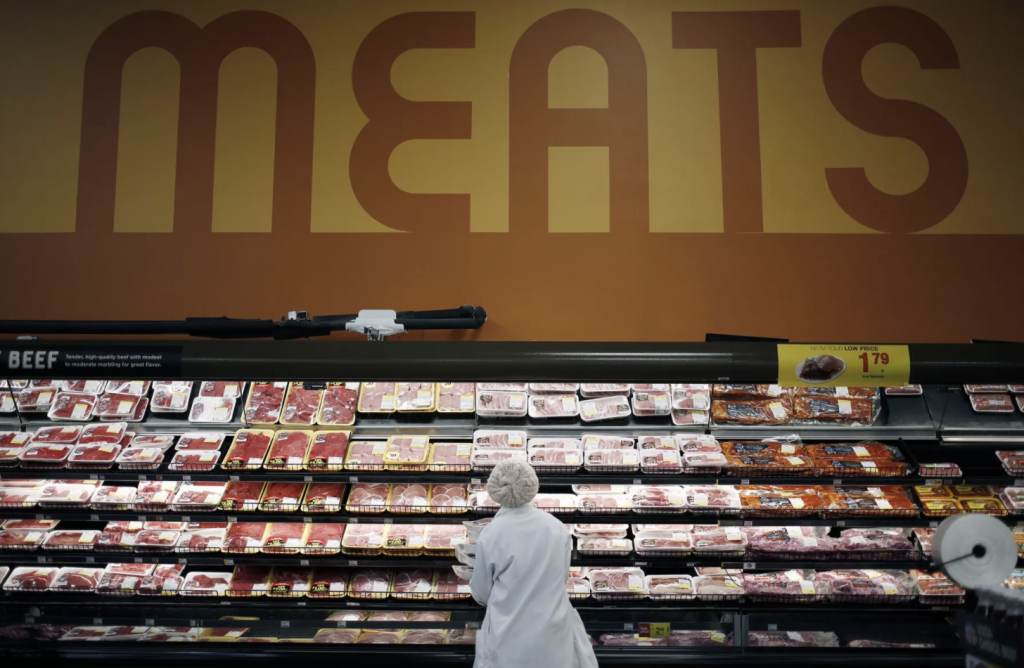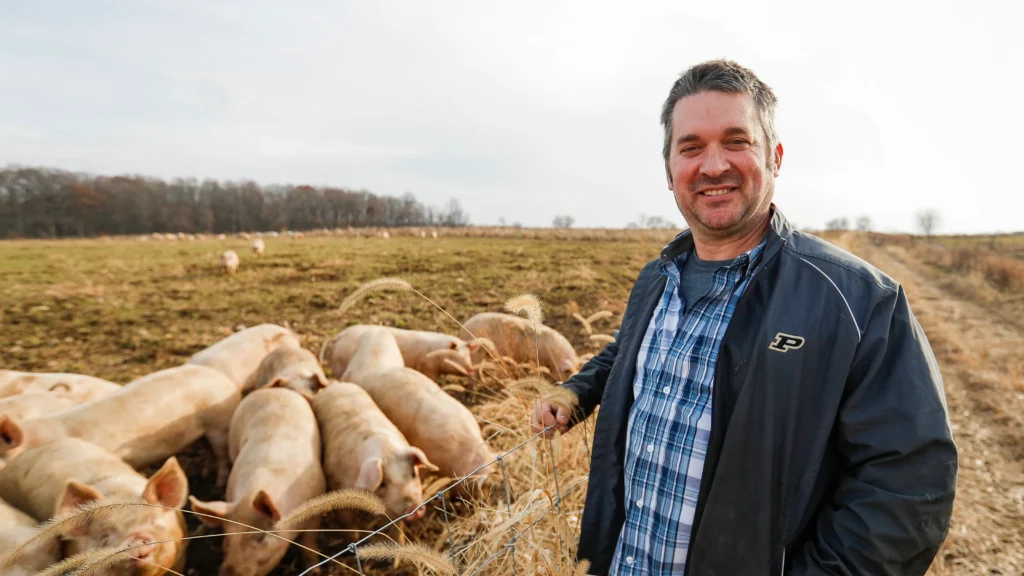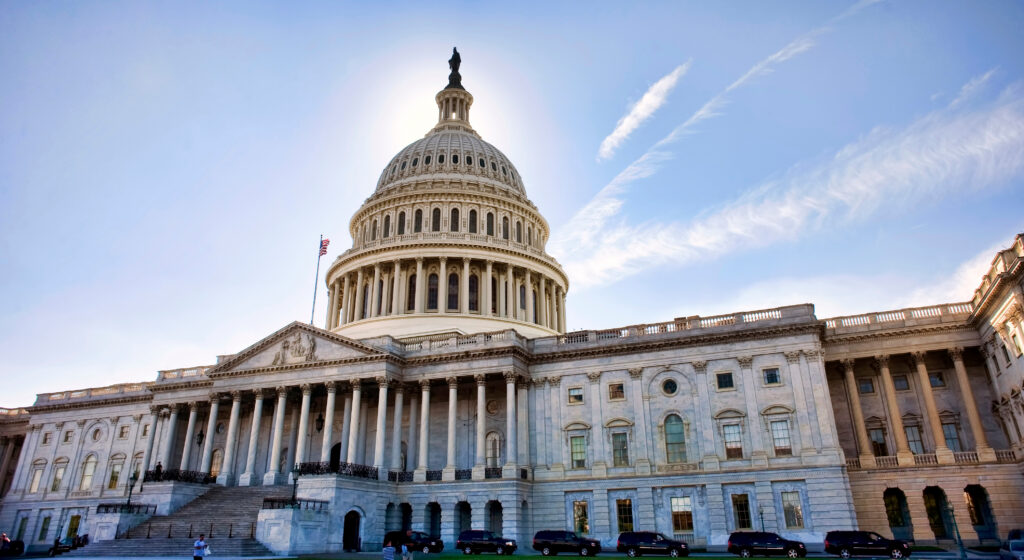Reposted from: https://www.vox.com/future-perfect/22298043/meat-antitrust-biden-vilsack
Shortly after President Joe Biden took office in January, a coalition of some 30 groups made a push for a cause that flew under the radar: curbing the power of Big Ag.
The signatories, which included familiar groups like farmer advocates, labor unions, animal welfare groups, and environmental organizations, called on Biden to issue an executive order banning food industry mergers, at least until stronger antitrust rules are in place. (Disclosure: The Open Markets Institute, where I work, was one of the signatories.)
The effort to shine a light on Big Ag is indicative of a broadening movement to stop the rapid consolidation of food production. It’s also part of an emergent anti-consolidation mood on the left. Antitrust policy has reemerged as a progressive priority over the past few years, though much of that focus has generally been on breaking up and regulating big banks or Big Tech.
There’s a case to be made that Big Ag — and more specifically, Big Meat — should join that list. As author and business reporter Chris Leonard said at a recent Yale Law conference, “concentration in agriculture is only important to people who eat, otherwise it’s a trivial matter.”
How we produce meat has profound implications for people, the environment, and animals. Big Meat corporations operate on an industrial model of animal agriculture that drives farmers off the land, injures workers, traps billions of animals in horrid conditions, pollutes rural drinking water, and in some states disproportionately sickens rural communities of color. Big Meat justifies this destruction under the banner of cheap meat, all while allegedly working together to actually raise prices for consumers.
To be sure, some of these problems existed in the livestock industry 50 years ago, back when we ate less meat and the industry wasn’t dominated by just a few companies. But the rapid expansion and consolidation of the meat industry since the 1970s has translated into immense political power, earned in part by giving out millions to politicians each year and maintaining a revolving door between the federal government and industry (two-thirds of meat industry lobbyists are former government employees). In fact, Tom Vilsack — who headed the United States Department of Agriculture (USDA) for both of President Obama’s terms, and was just confirmed to return to the post as Biden’s agriculture secretary — was a dairy industry lobbyist during much of the Trump presidency.
This revolving door has resulted in legislation and regulatory policy that leans heavily in the big meatpackers’ favor. In fact, early in the pandemic, President Trump signed an executive order to keep slaughterhouses open — and that executive order was drafted by a meat lobbyist.
Obama made major promises to tame meatpackers’ power, but as agriculture secretary, Vilsack failed to make headway in the face of industry pushback. The Biden administration now has a chance to move where Obama faltered — but with Vilsack returning, food-focused activists are skeptical.
Taking on Big Meat wouldn’t just help consumers, farmers, and meatpacking workers; one poll found 82 percent of independent rural voters would be more likely to vote for a candidate who supports “a moratorium on factory farms and corporate monopolies in food and agriculture,” so it could also help halt Democrats’ losing streak in rural areas and heartland states.
As progressives take their campaign against consolidation into a higher gear with a friendlier administration in power, Big Meat needs to be on the priority list.
What exactly is “Big Meat”?
When you roam the meat aisle, you’ll see a wide variety of brand names, but chances are good that most of them are owned by one of the just six companies that control two-thirds of all US meat production: JBS, Tyson Foods, Cargill, Smithfield, Hormel, and National Beef.
The meat industry is even more consolidated today than the early 1900s, when Upton Sinclair wrote The Jungle and President Woodrow Wilson broke up and regulated the powerful and manipulative Meat Trust, the handful of companies that dominated the market at the time. These progressive-era reforms worked for some 50 years to establish fairer and more competitive livestock markets. As recently as 1977, the top four companies in each industry controlled just 25 percent of cattle, 31 percent of pork, and 22 percent of chicken processing.
But that all changed in the late 1970s, when judges and legal scholars adopted a new, radically conservative antitrust doctrine that gave corporations more cover to buy up their competitors. The former president of Tyson Foods, Don Tyson, told Leonard, the business reporter, that their motto was to “expand or expire — buy your competitor or go out of business.”
In addition to direct competitors, meat corporations such as Tyson bought up or drove out companies all along the meat supply chain, from feed manufacturers to livestock breeders. Altogether, this decimated independent, local businesses that kept money circulating through rural communities and funneled wealth to a handful of corporate headquarters instead. Today, the top four corporations in each industry slaughter 73 percent of all beef, 67 percent of all pork, and 54 percent of all chicken.
Over this period, meat production became much more industrial, and meatpackers used their growing power to push the farms they bought from to consolidate as well — to go big or go home. This precipitated an explosion in factory farms, dramatically expanding the chicken industry and shifting pork and beef production to fewer, larger farms.
For example, from 1997 to 2012, the number of pigs on factory farms has gone up by more than a third and the average hog farm has grown by 70 percent — but nearly 70 percent of hog farms have gone out of business in recent decades. In one decade, the number of cattle-feeding operations in the largest 13 cattle states dropped by 40 percent as the average operation size increased 13 percent. Today, about 9 billion animals live in terrible conditions on American factory farms, producing some 100 billion pounds of meat a year, and all closely controlled by just six meat conglomerates.
:no_upscale()/cdn.vox-cdn.com/uploads/chorus_asset/file/22324272/HogsandPigs.png)
Factory farms aren’t just bad for animal welfare and the environment; increased consolidation leaves livestock farmers with little choice but to raise animals on the big meat companies’ terms. This has driven small farmers off the land and trapped those who remain in take-it-or-leave-it contracts that are so exploitative some farmers say they are treated like indentured servants.
How Big Meat controls farmers
Say you’re a chicken farmer in the Southeast, where most chickens are raised. To get into the business, you’ll need to sign a contract to raise chickens for a poultry processor (or “integrator”) like Tyson. Right from the outset, you’re at a disadvantage — half of all chicken farmers report having just one or two integrators to choose from, which gives the integrators more power to set the terms of their contracts.
For the average-size farm (four chicken houses) you’ll need to invest around $1 million to get started. Every couple of months you’ll receive a new flock of baby chicks, which you don’t technically own. The integrator will drop off feed and everything else they need.
You’re not paid a standard price for each chicken you raise. Instead, you’re paid based on an opaque performance ranking system that compares you to other chicken farmers in your area — if you used less feed to raise heavier birds, you’ll get a bonus, but if you weren’t as efficient, you’ll get a pay cut.
Income isn’t so reliable, and some weeks you might receive a flock of sick birds and the loss sets you back on your $1 million loan payment for those chicken houses. You want to say something, but you risk retaliation. Meatpackers have been known to send farmers who complain even more sick birds or even withhold chicken feed, driving them out of business.
Such unpredictable income can trap farmers in a cycle of debt. While the median poultry farming household did make more than the median US household in 2011, the range of incomes across poultry households is much larger — the bottom 20 percent of poultry households made $18,780 or less.
This meatpacker manipulation isn’t unique to poultry. Most pork and about a third of beef is produced on contract to a shrinking number of powerful buyers. These arrangements give meatpackers more power to determine the price farmers receive, and they incentivize an industrial, factory-farm model that is disastrous for animal welfare and the environment.
Meatpacker abuse extends to the next step in the supply chain, meat processing, where the powerful meat lobby has deregulated worker safety.
Why meatpacking plants are some of the most dangerous workplaces
Perhaps the best illustration of the power Big Meat holds over its workforce came in the spring of 2020, as Covid-19 spread through the close quarters of meatpacking plants. Rather than pause or slow slaughter lines to prevent further outbreaks, dominant meat lobbyists literally wrote new rules for the Trump administration to keep plants running, business as usual.
Without mandatory or enforceable pandemic safety standards, most meatpackers still have not reconfigured their plants or slowed slaughter line speeds to allow for proper distancing. As a result, more than 57,000 meatpacking workers have fallen ill and 284 have died since the start of the pandemic. (Here’s a helpful visualization of how meatpackers can make their plants safer for workers.)
Meatpacking has always been a gruesome job, but working conditions dramatically deteriorated during the 1980s after decades of reform.
From 1980 to 1990, meatpacking worker injury rates increased 40 percent. Despite such high injury rates, inspections by the Occupational Safety and Health Administration (OSHA) fell to an all-time low in the late ’90s.
Today, the industry averages two amputations per week. Many of them can be attributed to fast slaughter line speeds, the leading cause of injury in meatpacking plants, which also lead to accidental cuts and repetitive motion disorders such as carpal tunnel syndrome. Poultry line speeds have more than doubled in the past half century, and the meat industry continues to lobby hard to make them even faster.
Despite these dangerous working conditions, wages remain low. In 1979, largely unionized meatpacking workers made roughly $28 per hour, 14 percent above the national manufacturing average, adjusted for inflation. In just more than a decade, meatpacking wages fell from 14 percent above the national average to 20 percent below it.
Wages fell after the broad deregulatory policies of the Reagan era ushered in both industry consolidation and union-busting. Just as meatpackers built power through buying up their competitors, they also preyed on weakened union power, closing union plants and reopening them with lower wages and a non-unionized workforce.
At the same time, meatpackers made a concerted effort to move plants from urban centers to rural areas hostile to unions, and recruited a more vulnerable and mobile immigrant workforce. Today, two-thirds of meatpacking workers are people of color, and roughly half are immigrants. Language barriers, institutional racism, and less unionization further decimated worker power and exacerbated exploitation.
A 2016 Oxfam report found that many poultry workers are denied bathroom breaks and resort to wearing diapers while working the slaughter line. In one informal survey of women in Iowa’s meatpacking industry, 85 percent reported witnessing or experiencing sexual violence at work.
Today, continued consolidation makes it easier for meatpackers to come together and conspire against workers and fix wages. An ongoing class-action lawsuit accuses 14 top poultry processors (representing some 80 percent of the industry) of meeting “off the books” at industry conferences to share information about hourly plant workers’ wages and benefits in a conspiracy to hold them down across the industry.
Progressives have long championed the working class, but until the pandemic hit, the plight of meatpacking workers went largely unnoticed. This goes for many rural food workers, predominantly immigrants and people of color, who are ignored when progressives often write off rural areas as white and conservative. A robust antitrust agenda that takes aim at Big Meat would, advocates argue, help these overlooked workers by breaking Big Meat’s political power.
How Big Meat cheats its customers
For all the talk of Big Meat feeding the world by producing “efficient” cheap protein, some of the biggest meat producers have recently been caught red-handed conspiring to inflate chicken prices for consumers.
Last year, the DOJ indicted 10 poultry executives for regularly calling and texting one another to coordinate their bids for large annual purchasing contracts with restaurant chains and grocery stores. Pilgrim’s Pride, the second largest US poultry company, pleaded guilty and paid the government a $110 million fine for “restraining competition,” though indicted poultry executives could still face criminal charges.
But poultry price-fixing schemes could go even further. Other private class-action suits have accused chicken companies of manipulating a price index and cutting back chicken production in order to raise prices, which could have cost the average American family of four an extra $330 on chicken, annually.
Now that one crime is out in the open, poultry corporations are rushing to settle these other suits. Just weeks ago, Pilgrim’s Pride and Tyson Foods agreed to pay $75 million and $221.5 million, respectively, to settle private price-fixing suits.
It’s not just chicken; most major meat corporations have been accused of price-fixing in recent years. In December, the world’s largest meatpacker, JBS, paid $24.5 million to settle pork price-fixing allegations, and in June, the DOJ subpoenaed the top four beef packers to investigate cattle market manipulation.
Making Big Meat play fair
So what can the government actually do to rein in Big Meat?
Well, the good news is there are already laws on the books to address Big Meat’s manipulation and merger mania. The bad news is we just haven’t been enforcing them. A good first step would be to appoint bold, creative, and progressive enforcers to lead critical antitrust agencies at the DOJ, the FTC, and, of course, the Department of Agriculture.
But if the Biden administration wants to get serious about taking on Big Meat, it needs to go further.
It can start by issuing stronger rules under the Packers and Stockyards Act — a 1921 law that is supposed to protect farmers against unfair and deceptive business practices. Biden’s USDA could pass rules that actually give contract farmers the opportunity to seek justice when jerked around by meatpackers, and cut loopholes for corporations that justify farmer mistreatment as a “reasonable business decision.”
To deter gouging consumers, antitrust enforcers could bring more criminal charges against executives when they conspire to inflate prices, rather than slap-on-the-wrist fines. The DOJ and FTC can also direct federal antitrust enforcers to study and break up the most harmful agribusiness mergers, and block any future mergers that would give a corporation an anti-competitive share of the market. (At a minimum, scholars believe markets are excessively concentrated when four firms dominate 40 percent of all sales, but caps could be set even lower.)
But effective antitrust enforcement needs to go beyond breaking up Big Meat or cracking down on price fixing. Regulators also need to set new rules of fair play to ensure alternative meatpacking models have a chance to succeed. The FTC has extensive power to issue fair competition rules that would do far more to dismantle corporate dominance, in meatpacking and beyond, than breaking up Big Meat alone.
None of these actions need approval from Congress. They just require political will from Agriculture’s Vilsack and other Biden appointees to stand up to meatpackers’ political power. Vilsack fumbled antitrust reform efforts during the Obama administration, but pressure from the Democratic base could help put this issue on the Biden administration’s agenda.
But progressives can also push Congress to step up. Several farmer advocates recently endorsed a new proposal by Sen. Amy Klobuchar (D-MN) that would simply outlaw the largest mergers, unless corporations can prove they do not harm competition (as it stands, most mergers are permissible unless the government can prove they likely harm consumers).
Workers need better enforcers in the federal government, too. A recent investigation found that OSHA failed to investigate over a third of the slaughter plants where workers died of Covid-19.
This isn’t a new problem — the agency has also claimed it did not have the resources to issue slaughter line speed standards that incorporate worker safety, another direly needed rule that the Biden administration should pick up. Strengthening unions, by passing laws like the PRO Act, would also help give workers a voice on the job.
The ravages of the pandemic and recent price-fixing scandals have put the dangers of Big Meat on full display. If progressives do not mobilize in this moment to demand a fairer, safer, and more democratic meat industry, the exploitation of workers, farmers, animals, and the environment will only get worse.




